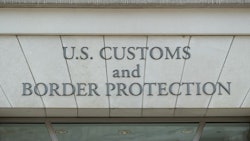If you are a cannabis business owner who believes it is only a matter of time before cannabis becomes federally legal, you also probably believe that competition from big pharma, big tobacco, or big alcohol will be your biggest worry when that day arrives. Or, you may think that the moment legalization happens, you have to sprint across state lines to grow quickly to defend your market share. Without minimizing any of these concerns, which I share, a much bigger risk, because it is not being discussed, is poised to jump you when you are not looking—this risk: being sued.
Indeed, federal cannabis legalization may just turn out to be a massive feast for many litigator-specialist lawyers.
This article is a call for cannabis operators to begin to plan for potential legal risks from within their organizations and to counter-intuitively plan for legal risk emanating from outside the company walls. When federal legalization arrives, cannabis will be a large and juicy target for lawsuits ranging from class action, intellectual property disputes, specific product liability, etc. In my opinion, it is inconceivable that lawsuits don’t spike and become a major expense and hassle for every cannabis company.
A Legal System Built For This
Please remember that our legal system is a very efficient system which encourages the use of its services. And with regards to class-action lawsuits, all it takes is for a single complainant to be attached to a single lawyer for an industrywide suit to be filed on a supposed aggrieved class of consumers. In a lot of cases, class-action lawsuits are thought up, designed, initiated, and prosecuted by lawyers while the class is of secondary importance. All this spells potential trouble for your firm.
In addition, multi-state product recalls, untrained budtenders dispensing advice which causes a perceived harm by a customer, the intentional mixing of distillate or flower from multiple farms (which is a no-no with regards to testing and product recalls), ambiguity as to why a flammable product (i.e., pre-roll, vape cartridge) emanates toxic fumes (potentially from unlisted added ingredients, porous metals used in the manufacture of the cartridge, or glue used in any product containing paper cones), and other ambiguous or nefarious activities all lay bare that liability can come for you from many directions. It is best to consider your pending liability as a “when” and not an “if.”
Proactive Defenses
There are three steps (probably more given your particular situation) you can take now to mitigate and hopefully remove the lawsuit target on your back: 1) be careful what you document; 2) be consistent in how you deal with consumers and other industry participants; and 3) always review any contracts you enter into with an eye to future problems.
Anything you document can be subject to legal discovery later: this includes emails, text messages, hand-written memos, and any other form of physical or digital notes. Meaning, if you become a target of a lawsuit, regardless of its merit, you open yourself up to legal risk even if what you are originally being sued for is not backed up by discovery directly, as other liability issues may arise from discovery which can be added to a lawsuit. Remember, when a lawsuit is filed, a plaintiff can include almost anything they want in their pleadings. Pleadings are supposed to detail the charges against you and be supported with evidence, whether included in the pleading or referenced. In practice, many pleadings are designed to be maximally alarming while being minimally informative. There is a term for this: “notice pleadings.” It is the equivalent to saying, “I know you are guilty of something,” so the pleading only includes vague, general claims.
A plaintiff files such a lawsuit to get to discovery and depositions. In many lawsuits, discovery and depositions are used as fishing expeditions. Lawyers use discovery to find the evidence which can be used to amend a lawsuit. Then they replace the vague claims with specific claims based on what is found. This is the danger of documenting everything for the sake of documenting and not having a proper records retention policy where documents are destroyed on a regular basis.
Think of a very detailed employee process manual with very specific procedures. Now imagine the process drifting over time wherein a step in the procedure is bypassed. Now further imagine a subpoena requesting your employee process manual and the step which has been skipped for years supporting a claim of the lawsuit against you. This is the way fishing expeditions can hook you.
Discovery is very cheap to deploy and very expensive to respond to, and sometimes just the requests for information can be a significant cost to you in your defense. Discovery is akin to being completely healthy, but if you go to enough doctors, you’ll eventually be diagnosed with some condition. If the plaintiff requests enough information, the odds are they will find something with which to justify their lawsuit.
Be Consistent
This brings us to consistency. Treat every customer, every business counter-party, every person and company you run into within cannabis on equal footing within a given type of relationship. You never want to be in a position where someone can accuse you of unfair dealings. Examples may be to include provisions in contracts, or assumptions in daily dealings, which can be considered unconscionable. For example, all your other clients are given specific repayment and late payment penalty terms which are all about the same. For a certain segment of your customers you use more onerous payment terms and penalties and you cannot back up why you have a separate policy for the aggrieved group.
If you have leverage in a business dealing, do not take advantage of somebody’s weak position by having them agree to higher costs, wider liability, less service or support, or anything else that would allow them to claim discriminatory treatment. If something goes wrong, you will be sued. If a business arrangement is too risky, it is better to pass on the opportunity than set yourself up for later headaches. Have standards, be consistent, and avoid exceptions that disadvantage someone or some company--this also includes your employees.
Check The Fine-Print
When federal legalization takes place, where you do business, with whom you do business, whether you have deep pockets (or not), will all come into play when the trial lawyers come knocking. One of the issues in all contracts is which set of laws the parties agree to operate under. Typically they are listed as states. “Parties agree that the laws and regulations of the state of California shall govern the interpretation of this agreement” or something similar.
This language is important when dealing with a bilateral agreement. The complication arises when your counterparty is contracted with another party with a different agreement on binding law and that third party is key for your counterparty to fulfill their responsibilities to you. Now you are in an indirect relationship with an unknown third party.
This is important because when lawsuits are filed that include defendants from multiple jurisdictions, this sets up the opportunity for the plaintiff to go “forum shopping,” looking for the jurisdiction that may favor plaintiff lawsuits of a particular kind. There is a whole consulting industry built around such decisions.
For you to be named in a lawsuit with cross-jurisdictional issues, the plaintiff’s lawyer will look for any point of contact you may have in the jurisdiction chosen for filing: Have you ever sold products or services in a particular state? Have or had a sales office open in the state? Stored product in the state? Almost any contact with a state will allow these long-arm jurisdiction issues to make your life very tough.
Legal uncertainty breeds litigation. Combine this uncertainty with contingency fees and the ability to solicit clients on television, billboards, emails, magazine articles, etc., and you have a situation ripe for litigation. The legal industry will trumpet the platitude sounding mantra that “we help plaintiffs win.” This sounds a whole lot better than “we make defendants lose,” even if the defendant is not directly responsible for the claims in the lawsuit.
Collecting damages is what most lawsuits are about. One of the tactics used in lawsuits to try to get a company to settle is to name third-party bystanders as defendants. This tactic is called an “add-on” and its purpose is to make the lives of the people in your life so miserable you will settle. This leads a cynic to conclude that our law is not pro-plaintiff, but pro-litigation. So, in practice, be very careful how much involvement you allow your investors to have in your company. Tell them they are possibly setting themselves up for liability. As a side benefit, this is an excellent tactic to scare off a meddlesome investor looking for a quick return on investment.
Wrapping Up
Lawyers are considered officers of the court and, as such, are deputized by the courts to stir-up trouble. This may sound harsh, but it is true. It is important you understand this fact. Lawyers are private sector actors that can initiate a compulsory process—nothing is more compulsory than having to respond to a lawsuit. If you don’t, you will be subject to a default judgment. You can try for a summary judgement, in which you attempt to have the lawsuit thrown out, but anything found in discovery (or via deposition), even if not in the original pleading, can be used to create a factual dispute, and thus an amended suit, resulting in the plaintiff’s attorney arguing the suit must continue.
To help prepare yourself for the future, you should consult your own attorney. In doing so, you will take a big step in being a business person who anticipates risk instead of just responding to events.
Loren Picard is CEO of High Desert Flower, Inc. and can be reached at [email protected]

























